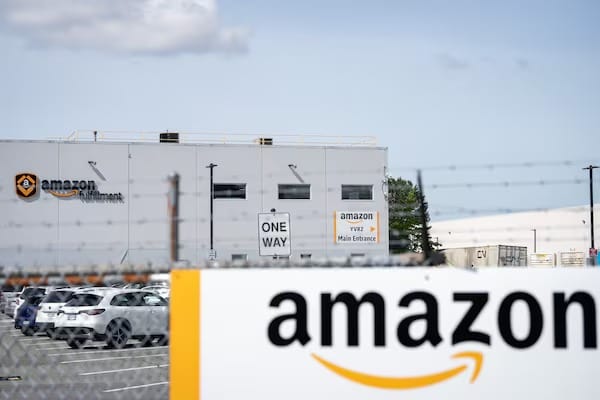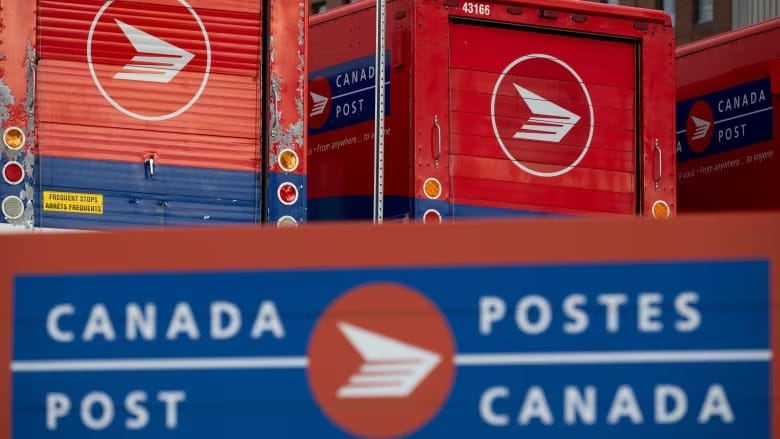Unions face uphill battle organizing Amazon warehouses in Canada: experts
Labour laws in Canada are generally stronger than those south of the border, where unions also face an uphill battle, experts say.

Unions attempting to organize Amazon workplaces across Canada are encountering a range of obstacles, including legal challenges and alleged anti-union tactics by the e-commerce giant.
While Canadian labor laws are generally more robust than those in the U.S., where unions also face significant challenges, experts say this is not a guarantee of successful unionization efforts here.
Adam King, an assistant professor in the labor studies department at the University of Manitoba, notes that even with stronger labor laws, “When you have an employer who’s as committed to remaining union-free as Amazon is, even those relatively better labor laws are not sufficient.”
Amazon has contested various stages of the certification process at several Canadian warehouses and has been accused by unions of using tactics to hinder worker organization, such as distributing workplace messages and conducting hiring sprees, which the company denies.
“Our employees have the right to choose to join a union or not to do so. They always have,” Amazon spokeswoman Barbara Agrait said in response to claims that the company is anti-union. She added that Amazon believes unions are not the best option for its employees, favoring direct interaction between employees and management.
In Canada, only one Amazon warehouse is unionized—a facility in Laval, Quebec, which was certified in May with the Confédération des syndicats nationaux (CSN).
This limited progress in Canada follows a historic unionization effort in the U.S. in 2022, where workers in Staten Island, New York, certified with the Amazon Labor Union. The National Labor Relations Board recently rejected Amazon’s challenge to this unionization, although this location remains the only unionized Amazon warehouse in the U.S. and does not yet have a contract.
Canada’s labor laws include provisions such as first-contract arbitration, which prevents delays similar to those experienced in the U.S. Barry Eidlin, an associate professor of sociology at McGill University, explains that Amazon at the Laval warehouse is “basically facing a choice of negotiating an agreement or having one imposed on them.”
Negotiations for a first contract at the Laval warehouse are underway, but Amazon has contested the unionization, claiming the process infringed on workers’ freedom of association due to the absence of a secret vote.
In Quebec and British Columbia, workers can be automatically certified without a vote if a certain percentage of the workforce signs union cards, a process known as card-check certification. The Laval warehouse was certified through this method.
Caroline Senneville, president of the CSN, praised Quebec’s labor laws, noting that card-check certification is among the provisions that strengthen a union’s position during certification and bargaining.
Eidlin criticized Amazon’s challenge of the Laval certification, calling it “mind-blowing,” and added that the company seems to believe it knows Canadian labor law better than the Canadian Supreme Court.
The CSN is also working to represent Amazon employees at other locations. In Lachine, Quebec, the province’s labor tribunal recently ordered Amazon to stop interfering in union matters and to pay the union $30,000, after finding that the company communicated anti-union messages, although it rejected claims of threats and intimidation.
Mostafa Henaway, an organizer with the Immigrant Workers Centre in Montreal, confirmed that the judge’s description of the Amazon workforce, including many immigrants with precarious status, was accurate. Henaway noted that such workers might be reluctant to support unions due to fear of “rocking the boat.”
In Delta, B.C., Unifor has filed an unfair labor practice complaint against Amazon, alleging the company engaged in anti-union activities and attempted to dilute union support through increased hiring. The results of a recent confidential vote at the warehouse are sealed due to this complaint.
Unifor’s director of organizing, Justin Gniposky, said Amazon initially tried to prevent the vote and then sought dismissal of the complaint but was unsuccessful. “They’re running out of options on this,” he added.
Agrait responded that Amazon believes the vote at the Delta warehouse undermines the rights of employees who chose not to support the union.
Experts, including Eidlin, say the tactics described by Unifor and CSN align with Amazon’s known anti-union practices. “They’re basically going to try every trick in the book,” he said.
Securing a contract at the Laval warehouse could serve as a significant milestone for unionization efforts across Canada, according to Senneville, who highlighted health and safety and pay as key bargaining priorities.
Agrait claimed that Amazon already provides competitive pay and benefits and comprehensive health and safety training.
Experts believe that achieving a first contract in Laval could be a breakthrough for organizing efforts nationwide. Henaway hopes that Amazon will be pressured into negotiating, while King suggests that unions may need to collaborate more closely to effectively bring Amazon to the negotiating table.





